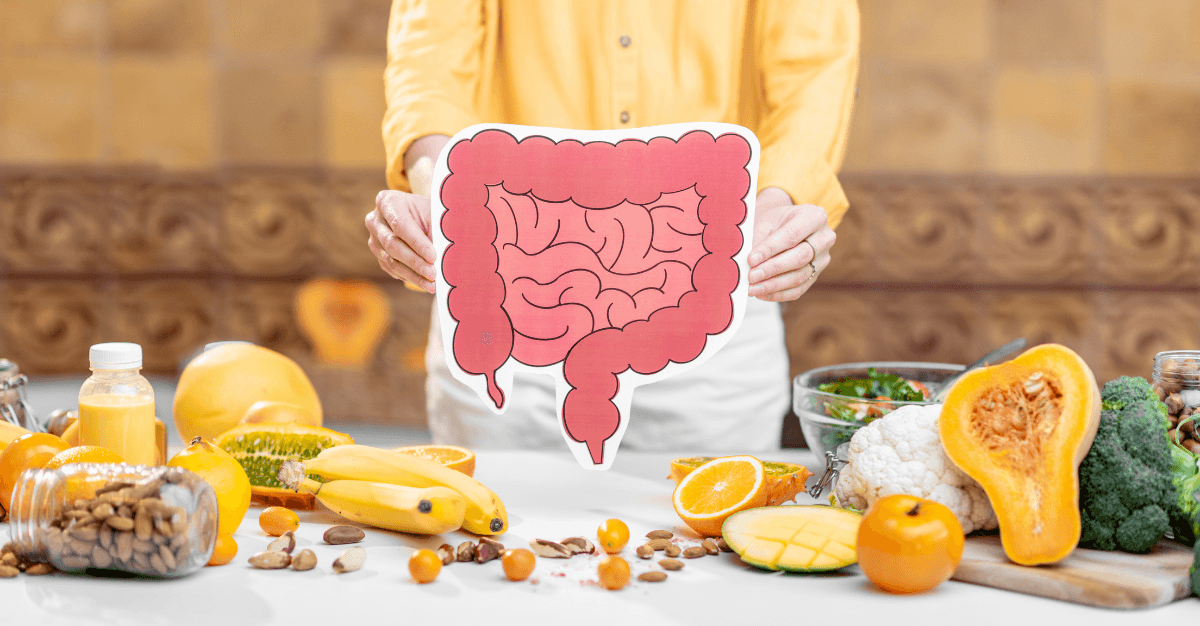Anxiety and depression have become alarmingly common, with more people than ever experiencing these conditions, often without clear answers. While mental health is multifaceted, one of the most overlooked factors contributing to mood disorders is the impact of hormone imbalances and nutrient deficiencies. Hormones and nutrients like magnesium, B vitamins, and omega-3 fatty acids play an essential role in regulating mood, and imbalances or deficiencies in these can exacerbate anxiety and depression. Let’s dive into how hormone imbalances and nutrient deficiencies can drive mental health issues and how you can support your mood through proper nutrition and hormonal balance.
The Hidden Connection Between Hormones, Anxiety, and Depression
Anxiety and depression are often seen as psychological conditions, but the reality is that they’re deeply intertwined with the body’s physiological systems—particularly hormones. Hormones act as messengers, regulating numerous bodily functions, including mood, sleep, appetite, and stress response. When hormones are out of balance, they can trigger symptoms of anxiety and depression, and sometimes, the body’s nutrient levels may also suffer, making things worse.
For women, hormone imbalances can be particularly disruptive. Fluctuations in estrogen, progesterone, and cortisol levels during different stages of life—such as menstruation, pregnancy, or menopause—can significantly affect mental well-being. On top of that, many women may also be dealing with nutrient deficiencies that compound the problem. But how exactly do hormones and nutrients work together to impact mood? Let’s break it down.
How Hormonal Imbalances Trigger Anxiety and Depression
Several hormones in the body play a direct role in mental health. Some of the main culprits contributing to anxiety and depression include:
1. Cortisol
Cortisol, often referred to as the stress hormone, is essential for managing the body’s response to stress. However, when cortisol levels remain elevated over long periods—due to chronic stress, poor sleep, or poor diet—it can lead to feelings of anxiety and depression. High cortisol levels can interfere with the production of other key hormones, like serotonin, which regulates mood. Additionally, excess cortisol can cause inflammation in the brain, further exacerbating mental health issues.
2. Estrogen
Estrogen plays a significant role in mood regulation, and fluctuations in this hormone are common during menstrual cycles, pregnancy, and menopause. Low estrogen levels, which are especially common during perimenopause and menopause, have been linked to symptoms of depression, irritability, and anxiety. Estrogen helps modulate serotonin and dopamine, two neurotransmitters that influence mood. When estrogen dips, it can contribute to feelings of sadness, fatigue, and anxiety.
3. Progesterone
Progesterone, another key hormone in the female body, has a calming effect on the brain. Low progesterone levels can increase feelings of anxiety and irritability. Progesterone also helps balance the effects of estrogen, so when it’s out of whack, estrogen dominance can occur, leading to mood swings, PMS, and heightened anxiety.
4. Thyroid Hormones
Hypothyroidism, or low thyroid function, is a well-known contributor to depression and fatigue. Thyroid hormones regulate the body’s metabolism and energy levels, and when they’re imbalanced, it can lead to feelings of hopelessness, lethargy, and low motivation. Women are more prone to thyroid imbalances, particularly those with autoimmune conditions like Hashimoto’s thyroiditis.
Nutrient Deficiencies That Fuel Anxiety and Depression
Even when hormones are in balance, nutrient deficiencies can still play a major role in mood disorders. Certain nutrients are required for optimal brain function and neurotransmitter production, and when these nutrients are lacking, mental health can suffer. Three nutrients in particular—magnesium, B vitamins, and omega-3 fatty acids—are vital for mood regulation and mental clarity. Let’s take a closer look at each.
1. Magnesium: The Relaxation Mineral
Magnesium is an essential mineral that plays a key role in over 300 biochemical processes in the body, including those that regulate stress and mood. It is often called the “relaxation mineral” because of its calming effect on the nervous system. Magnesium helps regulate the release of stress hormones and supports the function of neurotransmitters like GABA (gamma-aminobutyric acid), which promotes relaxation and reduces anxiety.
A magnesium deficiency can lead to heightened stress responses, anxiety, and even depression. In fact, research has shown that people with low magnesium levels are more likely to experience symptoms of anxiety and depression. It’s no wonder that magnesium supplementation has been shown to help reduce anxiety and improve sleep quality in individuals dealing with these conditions.
Magnesium-rich foods include leafy greens (like spinach), nuts and seeds (especially pumpkin seeds and almonds), avocados, and legumes. If you find it difficult to get enough magnesium through food, supplementation can be an effective option.
2. B Vitamins: The Mood-Boosting Powerhouses
The B vitamins—especially B6, B9 (folate), and B12—are essential for the production of neurotransmitters like serotonin, dopamine, and GABA, all of which regulate mood. These vitamins help the body convert food into energy, support nerve function, and assist in the creation of red blood cells. When B vitamins are deficient, it can lead to fatigue, irritability, brain fog, and heightened anxiety.
- Vitamin B6 is involved in the production of serotonin and dopamine, two neurotransmitters directly linked to mood regulation. Low levels of B6 have been associated with depression and irritability.
- Folate (B9) plays a role in the synthesis of serotonin, and a deficiency in folate has been linked to depression and fatigue.
- Vitamin B12 is essential for maintaining healthy nerve function and energy levels. A deficiency in B12 can cause feelings of fatigue, confusion, and depression.
B vitamins are found in whole grains, legumes, eggs, meat, dairy, and leafy greens. However, stress, poor diet, and certain medications can deplete B vitamin stores, making supplementation important for those struggling with anxiety and depression.
3. Omega-3 Fatty Acids: The Anti-Inflammatory Mood Regulators
Omega-3 fatty acids are essential fats that play a key role in brain health and function. They are crucial for the structure and function of brain cells and help regulate inflammation, which can impact mood and mental clarity. In fact, omega-3s have been shown to have significant mood-boosting effects, particularly in individuals with depression and anxiety.
Research suggests that low levels of omega-3s, especially DHA (docosahexaenoic acid) and EPA (eicosapentaenoic acid), are associated with an increased risk of depression and anxiety. Omega-3s help reduce inflammation in the brain, support neurotransmitter function, and even improve the sensitivity of brain receptors to serotonin and dopamine.
You can get omega-3s from fatty fish like salmon, mackerel, and sardines, as well as from plant-based sources like flaxseeds, chia seeds, and walnuts. If you struggle to get enough omega-3s from your diet, fish oil or algae-based supplements can be an excellent option.
How to Restore Balance and Improve Mood
Now that we understand the connection between hormone imbalances, nutrient deficiencies, and mood disorders, what can you do to restore balance and improve mental well-being? Here are a few practical steps:
- Eat a nutrient-dense, balanced diet: Focus on whole foods that are rich in magnesium, B vitamins, and omega-3 fatty acids. Incorporate plenty of leafy greens, fatty fish, nuts, seeds, and whole grains into your meals.
- Consider supplementation: If you suspect deficiencies, consider supplementing with magnesium, B vitamins, and omega-3s. Be sure to consult with a healthcare professional before starting any new supplement regimen.
- Manage stress: Chronic stress can deplete essential nutrients and exacerbate hormone imbalances. Incorporate stress-reducing practices like yoga, meditation, deep breathing, and regular exercise to support your mental and physical health.
- Get quality sleep: Sleep plays a vital role in hormone regulation and nutrient absorption. Aim for 7-9 hours of restful sleep each night to help restore balance to your body and mind.
Anxiety and depression are complex conditions with multiple contributing factors. Hormone imbalances and nutrient deficiencies, particularly in magnesium, B vitamins, and omega-3 fatty acids, play a significant role in driving mood disorders.
If you’re struggling with anxiety, depression, or hormone imbalances, it may be time to take a deeper look at your nutrient intake and hormone levels. A naturopathic consultation can help you create a personalized plan to support your mental health and achieve lasting balance.
Ready to restore balance and improve your mood? Schedule a consultation today to explore the root causes of your symptoms and find a natural path to healing.
Sources:
Nasir M, Bloch MH. Trim the fat: the role of omega-3 fatty acids in psychopharmacology. Ther Adv Psychopharmacol. 2019 Aug 27;9:2045125319869791. doi: 10.1177/2045125319869791. PMID: 31489174; PMCID: PMC6713969.
Botturi A, Ciappolino V, Delvecchio G, Boscutti A, Viscardi B, Brambilla P. The Role and the Effect of Magnesium in Mental Disorders: A Systematic Review. Nutrients. 2020 Jun 3;12(6):1661. doi: 10.3390/nu12061661. PMID: 32503201; PMCID: PMC7352515.
Young LM, Pipingas A, White DJ, Gauci S, Scholey A. A Systematic Review and Meta-Analysis of B Vitamin Supplementation on Depressive Symptoms, Anxiety, and Stress: Effects on Healthy and ‘At-Risk’ Individuals. Nutrients. 2019 Sep 16;11(9):2232. doi: 10.3390/nu11092232. PMID: 31527485; PMCID: PMC6770181.
Sun Q, Li G, Zhao F, Dong M, Xie W, Liu Q, Yang W, Cui R. Role of estrogen in treatment of female depression. Aging (Albany NY). 2024 Feb 2;16(3):3021-3042. doi: 10.18632/aging.205507. Epub 2024 Feb 2. PMID: 38309292; PMCID: PMC10911346.
Knezevic E, Nenic K, Milanovic V, Knezevic NN. The Role of Cortisol in Chronic Stress, Neurodegenerative Diseases, and Psychological Disorders. Cells. 2023 Nov 29;12(23):2726. doi: 10.3390/cells12232726. PMID: 38067154; PMCID: PMC10706127.





